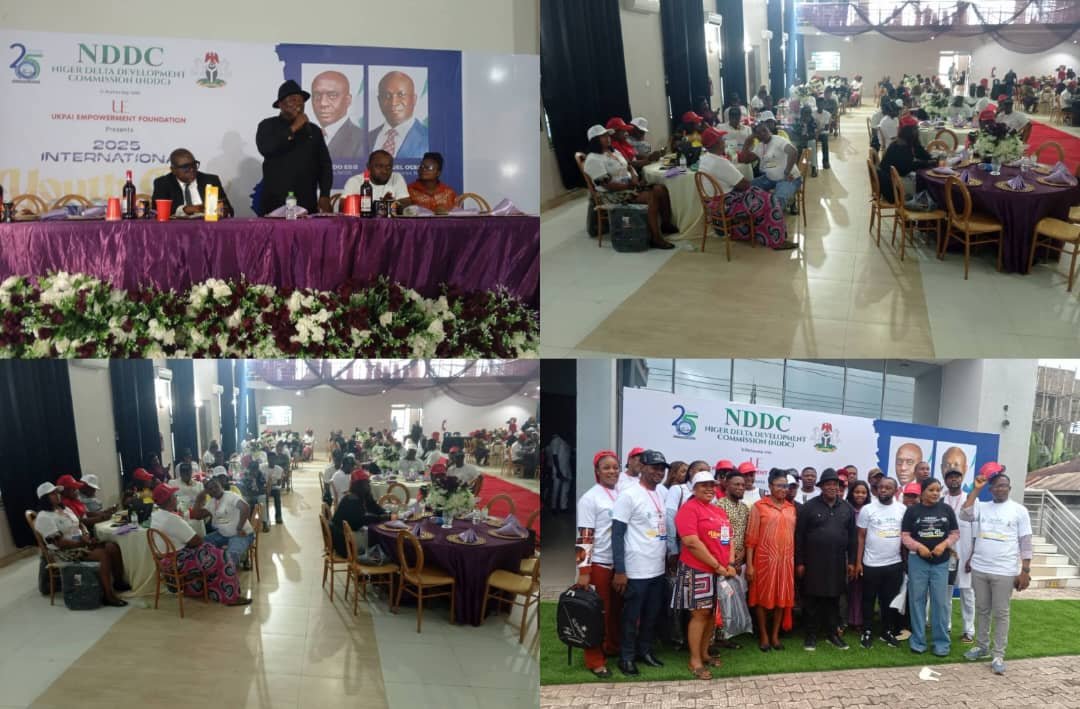Vice Admiral Ibok-Ette Ibas (rtd), the newly appointed Sole Administrator of Rivers State, has issued a stern warning against any actions that could disrupt the peace, progress, and economic stability of the state.
In his inaugural address at the Government House in Port Harcourt on Thursday, Ibas underscored his commitment to restoring order and fostering unity amid the state’s ongoing political crisis.
The retired naval chief, who previously served as Nigeria’s 20th Indigenous Chief of Naval Staff and as the country’s commissioner to Ghana, emphasized that his acceptance of the role was not driven by personal ambition but by a deep-seated duty to the people of Rivers State and Nigeria as a whole.
“I have dedicated my life to the service of our great nation,” Ibas stated. “First, as a member of our Armed Forces, and now, once again, in service to ensure peace, stability, and prosperity—not just for Rivers State, but for Nigeria.”
Acknowledging the gravity of the situation in Rivers, Ibas lamented that nearly two years of political deadlock had left the state in turmoil, paralyzing governance, eroding democratic institutions, and creating deep divisions among the people.
Read Also: Okpebholo distances self from South-South governor’s position on Rivers emergency rule
“The political impasse has threatened security, undermined economic and social structures, and cast a shadow of uncertainty over the future,” he noted. “These are realities we cannot afford to ignore.”
He expressed empathy for the struggles of the people, recognizing their fears and frustrations. “As a son of the Niger Delta, I am one of you. I feel the weight of this moment, the uncertainty faced by families, businesses, and communities. It is my duty to help restore stability.”
Ibas credited President Bola Ahmed Tinubu for his swift and decisive intervention, declaring a state of emergency in Rivers State to prevent further decline. He noted that his mandate as administrator was clear: to restore law and order, stabilize the political landscape, and create conditions for a full return to democratic governance.
“This is not a task for one man alone,” he emphasized. “Success will depend on the collective efforts of elders, political leaders, traditional rulers, youths, women, the media, and civil society.”
Distancing himself from political rivalry, Ibas assured the public that he was not in Rivers State as a partisan actor but as a neutral figure tasked with bringing stability. “I come as a servant of the state, entrusted with the solemn duty of restoring peace and order so that Rivers State can reclaim its rightful place as the oil and gas capital of Nigeria—and indeed, Africa.”
Stressing the importance of collaboration, Ibas urged all Rivers residents, regardless of political affiliation, to set aside their differences and work towards rebuilding trust and stability. He warned against destructive actions, particularly the targeting of national infrastructure, which he said would only harm the state’s development.
“We in the Niger Delta have long put behind us the days of violent agitation,” he reminded. “We have seen the devastating effects—on our environment, on our livelihoods, and on our collective progress. Dialogue and honest engagement remain the most effective tools for resolving differences.”
In closing, Ibas called for optimism and resilience. “The challenges before us require unity, not division; cooperation, not discord; forward-thinking, not backward grievances. Together, we can rebuild Rivers State and secure a better future for our children.”









